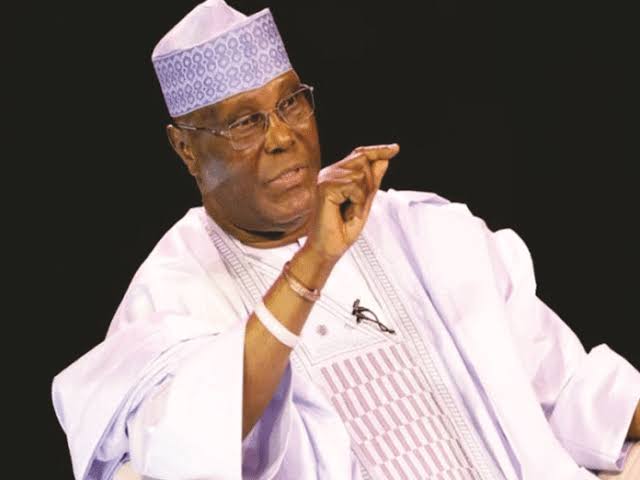
Atiku... Photo credit: File
Atiku Abubakar, former vice-president, has demanded clarity on petrol subsidy policy and crude oil refining from the federal government.
In a post on X on Monday, Atiku said reports regarding the government’s continuation of the subsidy on petrol shows the “unclear” governance under President Bola Tinubu’s administration.
On Monday, TheCable reported that Tinubu approved a request by the Nigerian National Petroleum Company (NNPC) Limited to utilise the 2023 final dividends due to the federation to pay for the petrol subsidy.
An NNPC forecast seen by the newspaper showed that the cumulative petrol subsidy bill from August 2023 will hit N6.884 trillion by December — leaving the national oil company unable to remit N3.987 trillion in taxes and royalties to the federation account.
The former vice-president said only transparent governance can provide Nigerians with relief from “the debilitating conditions of fuel scarcity and the escalating inflation affecting petroleum products”.
Tinubu, in his inauguration speech on May 29, 2023, said the subsidy on petrol “is gone”.
“The latest revelations circulating through credible media outlets regarding the federal government’s covert continuation of the subsidy on premium motor spirit (PMS) represent another chapter in the opaque governance under President Bola Tinubu’s administration,” Atiku said.
“This development starkly contrasts with the president’s firm assertions in a national broadcast, which followed closely on the heels of public protests decrying poor governance, where he declared the subsidy regime concluded.
“However, disclosures prior to his announcement have consistently indicated a resurgence of subsidy payments, albeit through less transparent means.
“This dissonance between the president’s words and his actions not only undermines the moral fabric of his leadership but also significantly erodes the credibility of his administration.
“At a time when the nation grapples with severe fuel scarcity and escalating energy costs, the continued delays in the re-operation of the Port Harcourt refinery stand as a national disgrace — a failure that rests firmly on the shoulders of president Tinubu, who also holds the office of the minister of petroleum resources.
“Moreover, the persistent denials by NNPC Limited only exacerbate the plight of Nigerians, who endure severe difficulties due to fuel shortages and resultant price inflations.
“Amidst a contentious dispute between local investors favouring refinery operations and those advocating for imported PMS, the president’s silence is profoundly disconcerting.
“It is paramount that the president, who is intrinsically responsible for overseeing and intervening in such critical disputes to safeguard national interests, steps up to fulfil these expectations.
“It is imperative, therefore, that the Tinubu administration urgently clarifies the entanglements surrounding the subsidy policy and the refining of PMS.”
“The veil of secrecy shrouding the downstream petroleum sector, coupled with alarming reports of NNPC Limited diverting funds intended for other purposes to cover subsidy payments, adds layers of confusion that are unbearably unsettling.”
Atiku warned that if these reports are accurate, they could have serious consequences on the integrity of fiscal federalism.
On January 3, NNPC denied the return of petrol subsidy, saying it had been removed entirely.
However, on April 15, Nasir el-Rufai, former governor of Kaduna state, said the federal government is spending more on petrol subsidy than before.
Gabriel Ogbechie, chief executive officer of Rainoil Limited, on April 17, claimed the government now spends N600 billion on petrol subsidy monthly.











